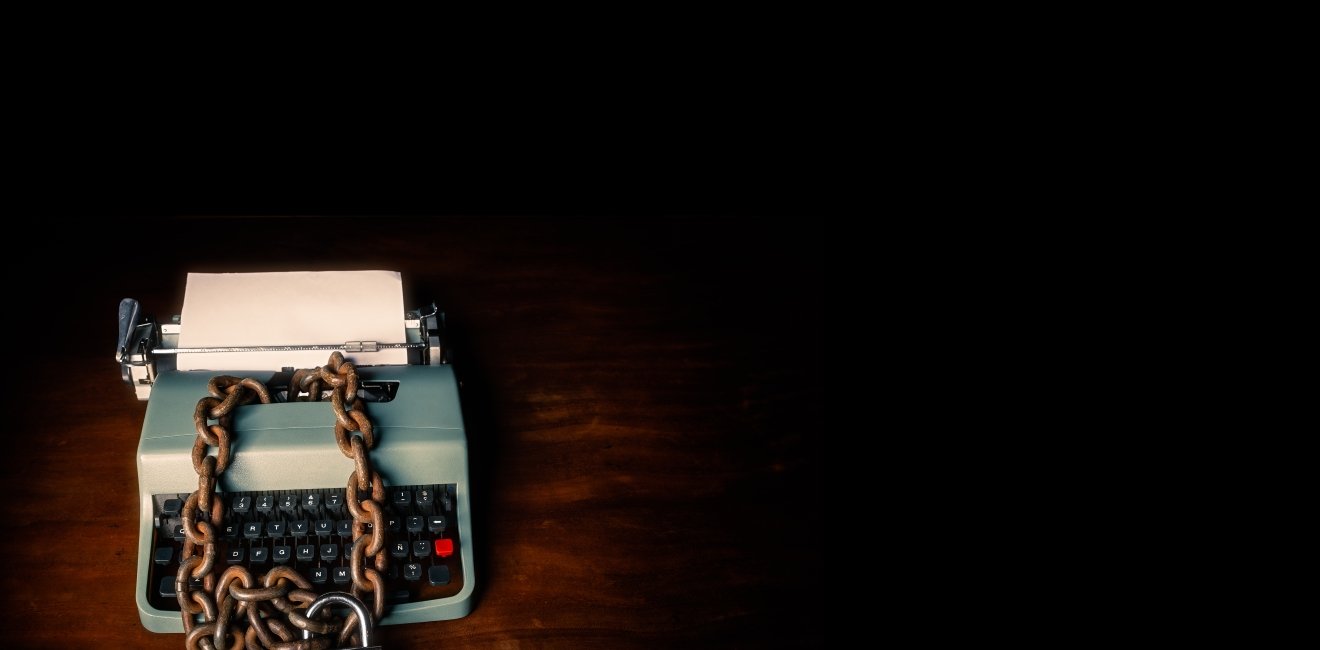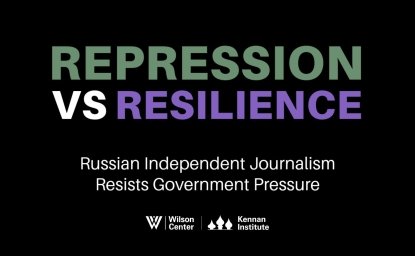Read the interview in Russian HERE.
Sofia Krapotkina, Producer, 7x7 Horizontal Russia Media Platform
Q: The laws on “foreign agent” media and on individuals declared “foreign agents” have entered into force. Some organizations and individuals have already received that status under the new laws. As of now, they affect almost exclusively those organizations that position themselves as foreign media operating in Russian territory and in the Russian language, such as Radio Liberty and Voice of America, and the journalists who work with them. However, nothing prevents the Russian authorities from interpreting this matter more broadly and characterizing any journalist as a foreign agent.
To what extent are you and your colleagues worried about this situation?
A: It does worry me, just as any other attack on freedom of speech in Russia does. Changing how we work doesn’t seem to make sense, as the law is written in such a way that one can become a “foreign agent” for anything at all. It is all a matter of what the regulatory body decides.
Q: Do you have an understanding about what you and your editorial team will do if you are declared foreign agents?
A: As far as I know, [our] editorial office does not have a ready-to-use action plan if we get this status, but common sense tells me that we will contest it in court and will try to continue our journalism work.
Q: Do you know of anyone who stopped working as a journalist altogether or collaborating with your editorial team because the risk of getting assigned the foreign agent status was too high?
A: I do not know of cases in which a journalist would decline to work with us [for that reason].
Q: In general, what fundamentally new has the emergence of these laws introduced into the practical aspects of Russian journalists’ work?
A: In my view, there is nothing new apart from additional risks.
Q: In your view, in a situation of government pressure, what is the difference between the working conditions of professional journalists, the staff of “conventional” media, and those of bloggers?
A: On the one hand, small projects are not being monitored as closely. On the other hand, it is easier to put pressure on them. Under these circumstances, the most sustainable are the small projects with a horizontal structure and a remote team.
Q: Is it easier or more difficult for bloggers compared to journalists?
A: I think it is equally difficult [for both] now.
Q: Do professional journalists see a change in the standards and approaches, in the acceptable styles and techniques, that are available to professional journalists and to bloggers? What is the attitude of your editorial team toward that difference, if it exists?
A: There are professional and unprofessional media, professional and unprofessional bloggers. The status of journalist per se does not guarantee an adequate quality of work. In our media outlet, bloggers produce half the content, and journalists feel fine about that.
Q: Under these circumstances do you see the possibility to continue critical coverage of social problems and topics that people in power find unpleasant without getting attacked by the state?
A: No, I don’t [see such a possibility].
Q: In that respect, are there safer strategies for the media?
A: [A safer strategy would be] to develop distributed management, organize fundraising campaigns, invest in digital security.
Q: When many readers and viewers declare they “completely avoid bad news,” and large state-affiliated media have an almost unlimited capability to fight for audience share by offering entertaining content, how can “socially oriented” media still attract and expand their audience when covering such weighty topics as political persecution, police brutality, and the injustices of the judicial and penitentiary systems?
A: Our target audience comprises civic activists and people sympathetic to their cause; that is, it is an audience with an already well-formed demand for certain topics. We see it as our priority task to ensure qualitative (engagement, impact) rather than quantitative audience growth. So [my advice is] to simply continue doing the job well.
Sergey Smirnov, Editor-in-Chief, Mediazona
Q: The laws on “foreign agent” media and on individuals declared “foreign agents” have entered into force. Some organizations and individuals have already received that status under the new laws. As of now, they almost exclusively affect those organizations that position themselves as foreign media operating in Russian territory and in the Russian language, such as Radio Liberty and Voice of America, and the journalists who work with them. However, nothing prevents the Russian authorities from interpreting this matter more broadly and applying the status to any other journalist.
To what extent are you and your colleagues worried by this situation? Are you changing anything in your day-to-day work practices because of that additional risk?
A: As far as I know, my fellow journalists are indeed discussing this issue. Of course, it worries the journalism community, especially after [some of] our colleagues in the regions were declared foreign agents. I feel it is impossible to change our mode of work because of that risk. Besides, it is completely unclear how this law will operate.
Q: Do you have an understanding about what you and your editorial team will do if you are declared foreign agents? Are you developing some “behavioral tactic” in advance? Do you know of anyone who stopped working as a journalist altogether because that risk was too high? In general, what fundamentally new has the emergence of these laws introduced into the practical aspects of the Russian journalists’ work?
A: We do have an approximate behavioral tactic in mind. I think everyone is discussing that to some extent. But serious changes are actually unlikely. As far as I know, no one is expressing an intention to stop being a journalist. I actually think that we should not attach too much significance to this law and its associated risks. And I don’t yet know anything about any new work practices.
Q: In your view, in a situation of government pressure, what is the difference between the working conditions of professional journalists, the staff of “conventional” media, and those of bloggers? Is it easier or more difficult for bloggers compared to journalists?
A: I think that the line between bloggers and journalists is gradually blurring. In any case, there are reputable and reliable sources and not so reliable ones. There are media that you trust and you know they follow certain standards. It seems to me that the Russian media landscape is mature and one understands what to expect from the media and from bloggers. Besides, bloggers have practically no information of their own. They interpret publicly known facts, which moves them closer to opinion-based journalism.
Q: In light of the relatively small independent media sector that still exists in Russia, under these circumstances do you see the possibility to continue critical coverage of social problems and topics that people in power find unpleasant without getting attacked by the state? In that respect, are there riskier and safer strategies?
A: At the moment, yes, it is still possible to cover those matters. But in Russia, things can very quickly change for the worse, so I accept that the situation may change because of attacks from the state. And these attacks can take very different forms, including financial ones. I don’t think there is a strategy at the moment that would ensure safe work, short of ceasing the publication of critical takes.
Q: When many readers and viewers declare they “completely avoid bad news,” and large state-affiliated media have an almost unlimited capability to fight for audience share by offering entertaining content, how can “socially oriented” media still attract and expand their audience when covering such weighty topics as political persecution, police brutality, and the injustices of the judicial and penitentiary systems?
A: Well, we are also trying to expand the agenda, not by means of entertaining content but by covering other events of public importance, such as the pandemic. As a matter of fact, Russian social and political life is concentrated on the courts, bans, criminal cases, and human rights violations, so in any case these topics become key agenda items, and here our actual competition comes from other independent (and sometimes even state-owned) media.
The opinions expressed in this article are those solely of the author and do not reflect the views of the Kennan Institute.









